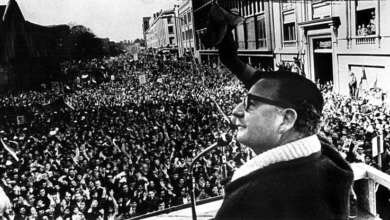The left in Ecuador secured a crucial victory yesterday in the face of attempts by the right-wing government of President Lenín Moreno to deny progressive candidate Andrés Arauz the right to stand in next February’s presidential election. The National Electoral Council ruled that the Union for Hope alliance would be permitted to nominate a substitute Vice Presidential candidate to take the place of disqualified former President Rafael Correa. From 2007-2017, Correa led a process of major social and political change in favor of the working class referred to as the Citizen’s Revolution.
Barring any unexpected developments, journalist Carlos Rabascall will be officially registered as the Union for Hope’s candidate for the Vice Presidency within days. The alternative would be for the entire ticket to be thrown out in its entirety, meaning that Arauz too would be disqualified. The decision was narrow, passing with a 3-2 majority of council members.
Correa’s replacement on the presidential ticket was made necessary by an unjust September 8 court ruling that upheld his criminal conviction and 8-year prison sentence on false charges of bribery. Not only did the prosecution fail to provide any concrete evidence, the legal proceedings were rushed and marred by collusion between the prosecutor and a judge.
Correa is not the only political leader in Ecuador who is the victim of legal persecution. Former Vice President Jorge Glas and Paola Pabón, governor of the key province of Pichincha, have been jailed by the Moreno government. Former National Assembly president Gabriela Rivadeneira and former Foreign Minister Ricardo Patiño are in exile in Mexico. Many others have been targeted as well
Ecuador’s election a key front for the Latin American left
During Correa’s presidency, Ecuador was a stalwart member of the bloc of leftist governments that swept to power in a continent-wide rejection of neo-liberal economic policies and the political domination of the United States often referred to as the “pink tide”. Ecuador was a member of this trend’s more left-wing, pro-socialist grouping led by Venezuela and Cuba and organized into the Bolivarian Alliance for the Peoples of our America (ALBA).
Moreno was Correa’s Vice-President during his first term in office, and ran with Correa’s full backing as the official candidate of the Citizens Revolution. However, Moreno betrayed his supporters shortly after taking office and formed an alliance with the country’s traditional right wing.
This formed part of a succession of victories for U.S.-backed, right-wing forces in the region. The election of right wing presidents in Argentina and Chile, the return of the fascistic right to power in Colombia, the imprisonment of former President Lula in Brazil and the election of Jair Bolsonaro, the dramatic intensification of the economic war against Venezuela and the coup in Bolivia were all part of the same trend.
But Latin America’s people’s movements and left wing political organizations have courageously resisted the right wing offensive and launched a counter-attack of their own, and Ecuador is no exception. Last year, when Moreno’s government reached an accord with the IMF to impose devastating austerity measures, the people rose up in such huge numbers and with such intensity that the government was forced to flee the capital and reinstate key subsidies.
A victory for the pro-Citizens Revolution ticket in the presidential election, which opinion polls indicate is likely unless there is major fraud, would have huge implications for the entire region. This week’s win in the National Electoral Council keeps hope for such a development alive.






